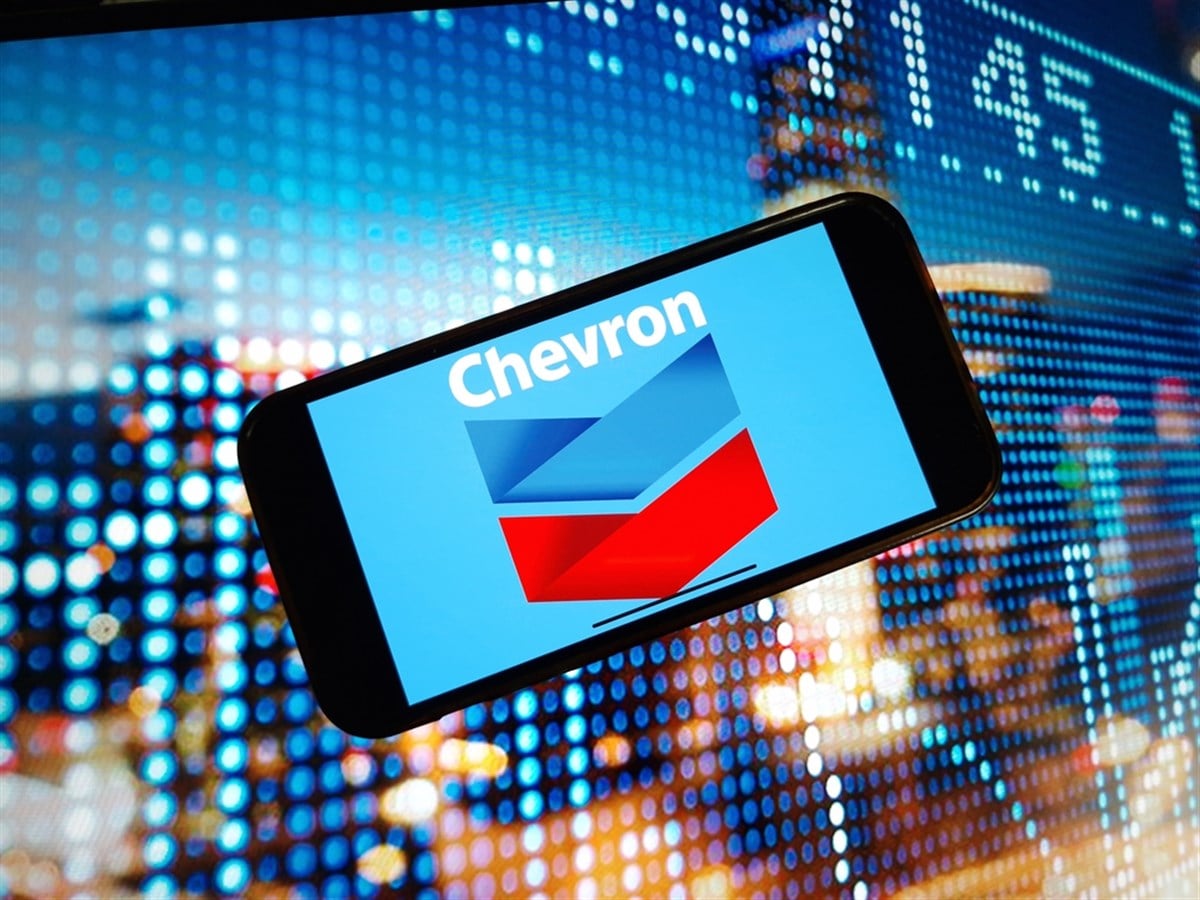
The latest readings on inflation show some cooling, and stocks seem to like it. However, it's important to be clear about why investors feel bullish. Inflation growth of around 3.3% won't prompt the Federal Reserve to lower interest rates, but it won't cause them to hike rates either.
So, if the next directional move for interest rates is lower, this is a good time to buy stocks. That's particularly true of stocks that are trading at a discount. Sadly, investor psychology can make it difficult for some investors to buy quality stocks when they're on sale.
But that's the key to long-term investing. And it's particularly true for stocks that pay a high-yielding dividend. Buying shares at a low price today gives you current income that you can use to manage inflation or reinvest for more shares. Then, when rates go down, the prices of these stocks will move higher to give you growth along with that dividend income.
Higher Oil Prices: Chevron's Inevitable Gain
Energy stocks, particularly oil stocks, were supposed to benefit from lower interest rates this year, which would boost demand. That hasn't been the case, and that's reflected in the price of Chevron Corp. (NYSE: CVX) stock, which is up just 3.4% in 2024 and is still down about 2.9% in the last 12 months.
However, at the risk of sounding like a broken clock, the long-term oil price will be higher. OPEC+ is maintaining output cuts while the Biden administration continues to release oil from our country's strategic oil reserve to keep prices down. That's a supply-demand imbalance that will have to be worked out in favor of higher oil prices.
And when interest rates move lower in late 2024 or early 2025, oil demand will increase. In that situation, CVX stock displays the qualities of a stock you'll want to own.
The company's merger with Hess Corp. (NYSE: HES) will likely be completed this year and give it much more leverage over oil prices. And today, investors get an attractive dividend with a 4.2% yield. Plus, the Chevron analyst forecasts on MarketBeat suggest growth of over 20% for CVX stock in the next 12 months.
Bristol-Myers is a Poor Trade But a Good Investment
The Bristol-Myers Squibb Co. (NYSE: BMY) is being weighed down by significant debt and concerns over patent expirations on some of its best-selling drugs. Both of those have soured traders on the stock, which is down 34% in the last 12 months and 17% in 2024.
Revenue is growing, albeit at a modest pace. However, the company posted a concerning $4.40 loss per share in its first quarter of 2024. That's a reminder that the company is digesting acquisitions it made to expand its pipeline. Unfortunately, that dilution is expected to weigh on earnings for the rest of 2024.
So, it's possible, perhaps likely, that BMY stock still has further to fall. However, with short interest only about 1.4% of the stock's float, selling the stock short is not a guarantee.
The strategic choice is to take a long position. You'll capture a dividend that yields 5.79% and pays out $2.40 per share annually. And when interest rates become more favorable, BMY stock will be positioned for a strong recovery.
The Worst Could be Over For UPS
At a time when e-commerce continues to grow, a company like United Parcel Service Inc. (NYSE: UPS) is a bellwether for the economy. So, when the company missed the top line in its first quarter 2024 earnings report, the market took notice. It doesn't matter that the company is facing rough comps to 2023 and 2022 - lower revenue is lower revenue.
UPS is implementing efforts to streamline costs and raise productivity, but those will take time to show up on the bottom line. In the meantime, the primary issue bedeviling investors is rising labor costs at a time when demand is lower. The consumer has held up stronger than economists expected. However, there are clear signs that consumer spending is slowing, at least on goods.
Another area of concern is debt. UPS has a higher debt load than it did 10 years ago, and servicing that debt is more expensive now, albeit not at historical levels.
For all that, this company still has strong financials that are being hit by cyclical headwinds. Investors can still collect a dividend with a current yield of 4.85%. And the UPS analyst forecasts on MarketBeat give UPS stock a 22.7% upside from its current level.

